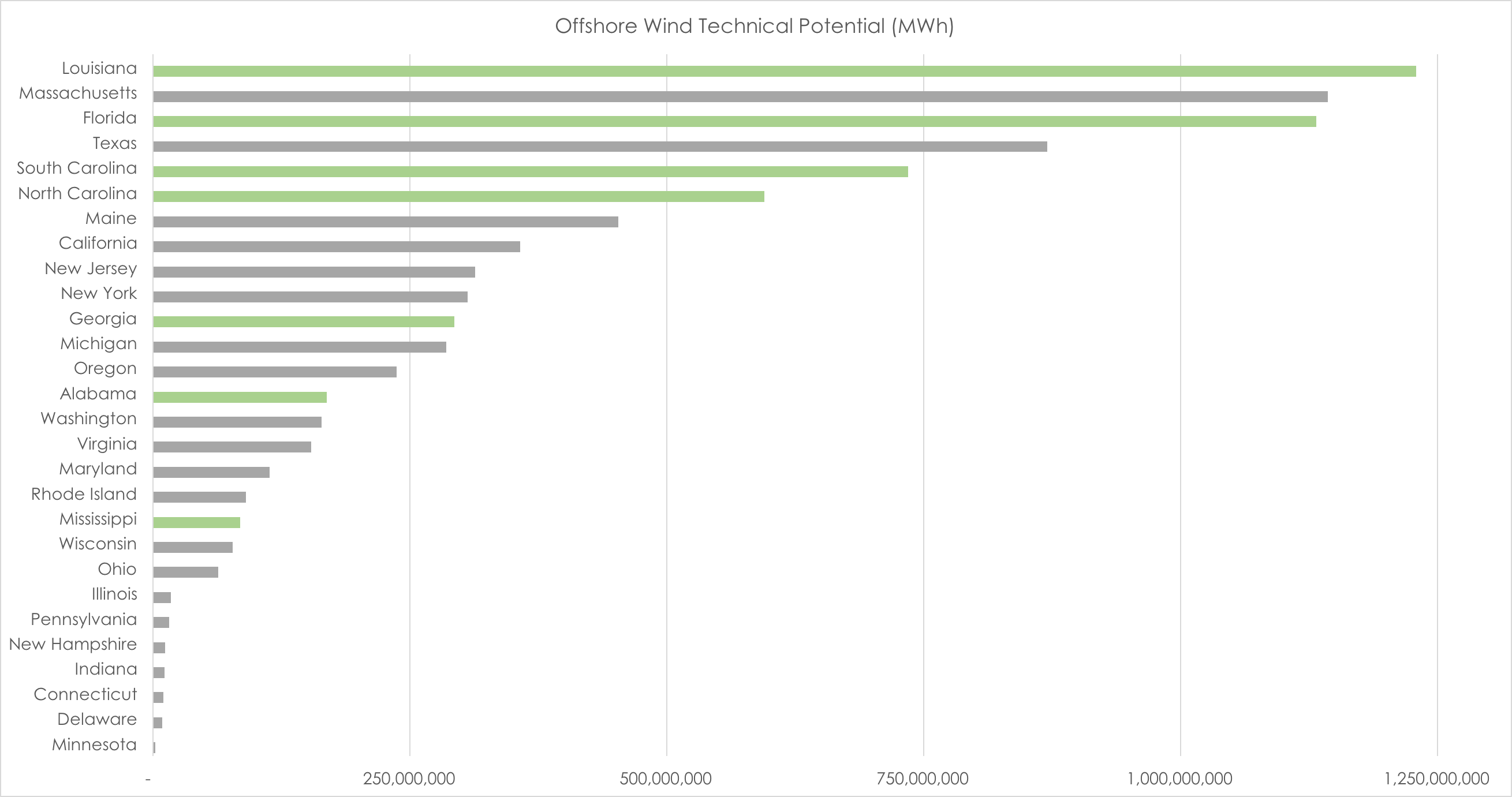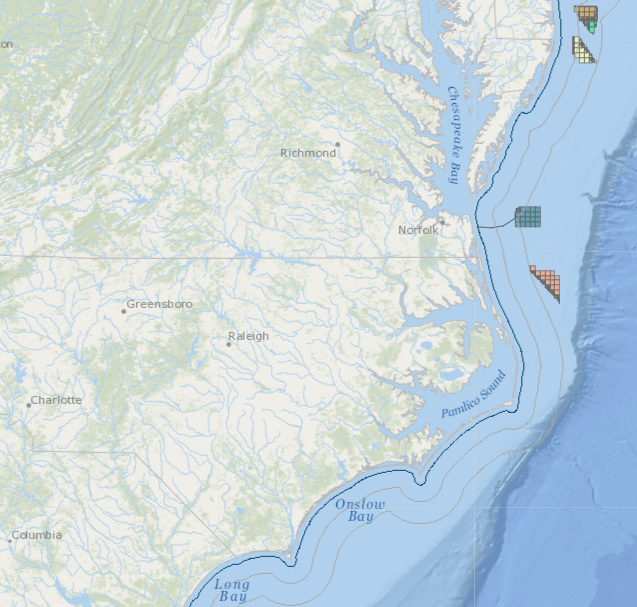On October 29, 2020, North Carolina, Virginia, and Maryland entered into the Southeast and Mid-Atlantic Regional Transformative Partnership for Offshore Wind Energy Resources (SMART-POWER), to collaboratively advance the regional offshore wind industry. The partnership, outlined in this memorandum of understanding between the states’ governors, seeks to “cooperatively promote, develop, and expand offshore wind energy generation and the accompanying industry supply chain and workforce” among the three states. Democratic Virginia and North Carolina’s governors, Ralph Northam and Roy Cooper, respectively along with Maryland’s Republican governor, Larry Hogan are the signatories on the inter-state partnership, signaling bi-partisan support for offshore wind energy. Additionally, the SMART-POWER agreement states other Southeast and Mid-Atlantic states are welcome to join the partnership, and we hope they do.
Working collaboratively is a positive step toward realizing the vast potential our country, and particularly the Southeast has for clean, renewable energy offered by offshore wind.

The Southeast has some of the strongest offshore wind potential in the nation, and all of the Southeastern coastal states hold the technical potential to generate much more than 100% of the electricity that each state uses. This offshore wind energy would be emissions-free and require no water consumption like fossil fuel power plants do. What’s more, offshore wind energy development can create a lot of jobs.
The development of this valuable resource is in the earliest stages in the Southeast
North Carolina has one offshore wind project under active development, Kitty Hawk Offshore, located roughly 27 miles from shore, near the northern boundary of North Carolina. This project has the potential to power about 700,000 homes. Currently, the Kitty Hawk project is conducting site assessment activities before it creates an official plan for how the wind farm will be configured and built. North Carolina also has two other possible sites for offshore wind energy along its southern border offshore, known as the Wilmington West and Wilmington East Wind Energy Areas. Leases have not yet been offered for these sites.
Virginia is home to the second operational offshore wind farm in the country, the Coastal Virginia Offshore Wind (CVOW) project by Dominion Energy, located approximately 27 miles off the coast of Virginia Beach. CVOW is a demonstration-scale wind farm, consisting of two 6-megawatt (MW) turbines and started generating power in October 2020. While a small project, CVOW is a stepping stone to a much larger project of 2,600 MW, the largest offshore wind project planned in the nation, capable of powering about 650,000 homes. The larger project is in the initial planning phases, but the lease to the area has been secured. This development is consistent with the state’s adopted goal of 5,200 MW of offshore wind energy by 2034, called for in the Virginia Clean Economy Act which was passed by the legislature in 2020.
Maryland has offshore wind projects under active development as well: Skipjack, and MarWin, 120 and 248 MW respectively, that when running will be able to power about 111,000 homes collectively. These projects are expected to be online in 2023.

Increasing collaboration between states will help advance this critical clean energy resource for our region, meaning more clean energy powering our electricity grid and more clean energy jobs powering the post-pandemic economic recovery.




